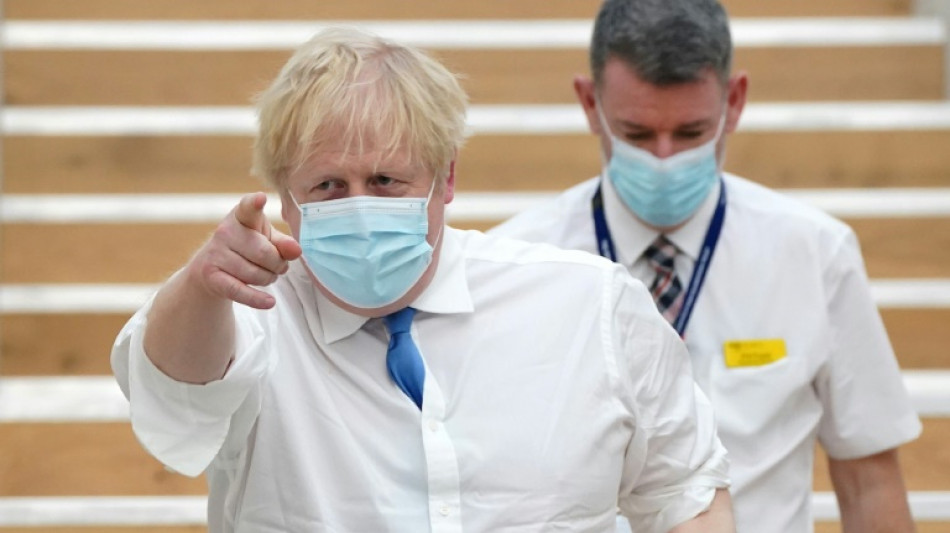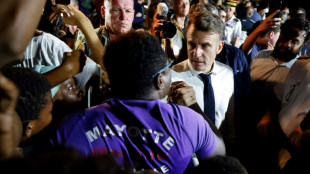

UK's PM denies end to Covid law is reckless
British Prime Minister Boris Johnson has denied throwing "caution to the wind" as he prepares to end all pandemic-related legal restrictions in England, amid a political backlash and scientific unease.
Johnson's premiership is in peril as police investigate a series of lockdown-breaching parties in Downing Street, and he stands accused by opposition parties of seeking to distract public attention with the new Covid plan.
But in a BBC interview broadcast Sunday, he said that with case numbers and hospitalisations from the Omicron wave apparently under control, it was time to revert to "personal responsibility" rather than legal mandates.
"I'm not saying that we should throw caution to the wind. But it's time for everybody to get their confidence back," he said, after bringing forward the plan by a month from when the current law was due to expire in late March.
However, the prime minister also stressed: "I think it's very important we should remain careful. Covid remains a dangerous disease, particularly if you haven't been vaccinated."
Under a "living with Covid" plan, the government says it intends this week to end a legal requirement for people to self-isolate when infected with the coronavirus. Johnson could address parliament as early as Monday.
The government says local authorities will be required to manage further outbreaks with pre-existing legal powers, and is expected to phase out free Covid testing for the general public, having already eliminated a mandate to wear masks in public settings.
The NHS Confederation, which represents senior managers in the state-run National Health Service, said its internal polling showed a large majority of health staff were opposed to ending self-isolation and free tests.
Matthew Taylor, the confederation's chief executive, acknowledged that the government's mass vaccination programme and emergence of new Covid treatments offered "real hope".
"But the government cannot wave a magic wand and pretend the threat has disappeared entirely," he said.
- 'Very unwise indeed' -
David Nabarro, the World Health Organization's special envoy for Covid, said that scrapping the law on self-isolation was "really very unwise indeed".
While the UK has suffered one of the world's worst per-capita death tolls in the pandemic, it remains a country with "an enviable record for public health expertise", the British official told BBC radio on Saturday.
"I really do worry that Britain is taking a line that is against the public health consensus -- that other countries, other leaders will say if Britain is doing it, why can't we, and this will create a bit of a domino effect around the world," Nabarro added.
In the UK's devolved system, Scotland, Wales and Northern Ireland set their own health policies and are largely staying more cautious than Johnson's intentions for England.
The opposition Labour party said that ending free testing was akin to substituting "your best defender" with 10 minutes to go of a football match.
"Boris Johnson is declaring victory before the war is over, in an attempt to distract from the police knocking at his door," Labour's health spokesman Wes Streeting said.
Downing Street confirmed on Friday that Johnson had submitted a written response to police questions over the parties held over the past two years, as detectives probe whether attendees violated strict distancing and virus prevention rules in place at the time.
He stonewalled questions about the "partygate" affair in the BBC interview, and declined to say if he would resign if he is fined by the police.
But Johnson insisted that despite the apparent party breaches by himself and his staff, the public would still follow guidance to self-isolate when necessary, even without a legal mandate.
"Look at the evidence, look at what the British people have done," he said, referring to general compliance with the rules since the pandemic struck early in 2020.
T.Peeters--JdB



